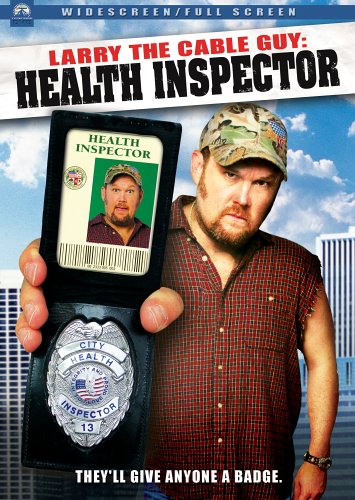Alisha Lewis died in June 2010.
The 22-year-old spent her final week on Earth paying a matter-of-fact visit to a funeral home to pick out a casket, choosing the white lilies that would rest atop it, and setting aside the hoodie and sweatpants she’d wear as mourners said their last goodbyes.
It was abject fear that coursed through her mother’s veins in early June 1990 when she raced to the Alberta Children’s Hospital, her sick twin toddlers crying in their baby seats. The week before, she had stopped at a fast-food drive-thru and picked up fries and a cheeseburger, which she split in two and handed to her daughters in response to their pleading.
Valerie Fortney of the Calgary Herald (that’s in Canada) writes this morning that after being diagnosed with what was then called "hamburger disease" — referred to today as E. coli infection– Alisha and Aimee Lewis became little celebrities in the city.
The Herald ran stories and photos of their plight, and they were featured on several TV news broadcasts, mainly because the girls were said to have possibly contracted the disease from the fast-food establishment, although the Calgary medical examiner at that time expressed concern that the contamination might have occurred outside of the disease’s normal incubation period.
Quickly, though, they slipped from the public eye. But the struggle had only just begun.
While Aimee quickly recovered, Alisha continued to suffer, and later went into complete renal, or kidney, failure.
When she was finally released from hospital six agonizing weeks later, her mother, Amanda Lewis, was told she’d suffered permanent kidney damage and might need a kidney transplant. "They first told me both of them might not make it," recalls Lewis, who not long after the crisis married her partner, Roger McLaren, who with their mom raised her two girls and boys, along with his two boys from a previous relationship.
Alisha later developed diabetic and autonomic neuropathy — a nerve disorder that can cause intense pain — and also had to have a feeding tube installed to keep nutrients in her body after being diagnosed with gastroparesis, a condition that affects the ability of the stomach to empty its contents.
Knowing all of her young life that she wasn’t likely to live to see age 25, Alisha made the difficult decision at the end of 2009 to end treatment. "She was sick of hospitals," says Lewis, "and she was sick and tired of always being sick and tired." Alisha gave up the painful tube feed, and began eating food again, although she often wasn’t strong enough to keep it in.
On June 8, 2010 — almost 20 years to the exact day of her contracting E. coli– Alisha died surrounded by her family, and cradled in the arms of her younger, by 12 minutes, twin sister. Thanks to accelerated osteoporosis and other life-threatening ailments, she was, says her mother, a young woman with the body of an 80-year-old.

 see below; this song by Calgary’s Loverboy came on the radio while driving back from Nebraska and Phebus said he liked it; there’s no accounting for taste).
see below; this song by Calgary’s Loverboy came on the radio while driving back from Nebraska and Phebus said he liked it; there’s no accounting for taste).
 Calgary Co-op Oakridge Centre on Southland Drive and 24th Street SW, Calgary, was the victim of a product tampering incident. As a result, Calgary Co-op has contacted the police and initiated a criminal investigation, and has notified the appropriate health authorities and is working closely with those authorities on the situation. Calgary Co-op has temporarily closed its Oakridge Centre as a precautionary measure and is conducting a complete inspection of its premises.
Calgary Co-op Oakridge Centre on Southland Drive and 24th Street SW, Calgary, was the victim of a product tampering incident. As a result, Calgary Co-op has contacted the police and initiated a criminal investigation, and has notified the appropriate health authorities and is working closely with those authorities on the situation. Calgary Co-op has temporarily closed its Oakridge Centre as a precautionary measure and is conducting a complete inspection of its premises. Figures also show a nearly 40 per cent increase in the number of restaurants, bars and grocery stores closed for food violations — ranging from thawing meat to mouse droppings in the kitchen — during the same period.
Figures also show a nearly 40 per cent increase in the number of restaurants, bars and grocery stores closed for food violations — ranging from thawing meat to mouse droppings in the kitchen — during the same period.(1)(1)(1).jpg) That’s what Tanya Maksymic, whose daughter Julia became seriously sick with E. coli in 2007, told the Calgary Herald after hearing that public health types are investigating a cluster of five cases in Calgary, which appear related to additional cases in Edmonton and Saskatchewan.
That’s what Tanya Maksymic, whose daughter Julia became seriously sick with E. coli in 2007, told the Calgary Herald after hearing that public health types are investigating a cluster of five cases in Calgary, which appear related to additional cases in Edmonton and Saskatchewan.(1).jpg) The Herald reported on March 15, 2008, that 13-year-old Brandon Jacklin will never handle a dog treat the same way after contracting salmonella from contaminated pork treats and losing 15 pounds during his medical ordeal that initially baffled health officials and frightened his family.
The Herald reported on March 15, 2008, that 13-year-old Brandon Jacklin will never handle a dog treat the same way after contracting salmonella from contaminated pork treats and losing 15 pounds during his medical ordeal that initially baffled health officials and frightened his family..jpg) It only took some bright journalist three days from the initial announcement to figure out that the four sick people with Shigella from
It only took some bright journalist three days from the initial announcement to figure out that the four sick people with Shigella from  Food safety is not simple
Food safety is not simple